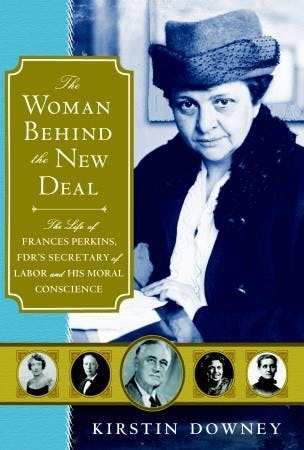

No one would ever accuse Perkins of sharing too much. Her goal: keeping the powerless on his crowded radar. Thus, at 33, Perkins began dressing like a dowdy middle-aged matron, earning her the sobriquet "Ma" Perkins.įDR paid Perkins the ultimate compliment: He treated her as a peer. Long before Hillary Clinton, Perkins wrestled with how the public, the press and male politicians perceived an ambitious woman.įerociously self-controlled and coolly insightful, Perkins realized early on that men found maternal figures unthreatening. Born into a comfortable Massachusetts Republican family in 1880, Perkins became a Democrat. Runtime: 67 minutes.The tragedy also changed her politics. Recorded at the Tenement Museum on March 9, 2010.

In recognizing the importance of this seemingly ordinary building, the Tenement Museum has re-imagined the role that museums can play in our lives. Built on Manhattan’s Lower East Side in 1863, this tenement apartment building was home to nearly 7000 working class immigrants.They faced challenges we understand today: making a new life, working for a better future, starting a family with limited means.

We tell the stories of 97 Orchard Street. Tenement Talks is an evening series of lectures, readings, panel discussions and programming that provides perspective on New York City’s rich culture.įree & held at the Tenement Museum 108 Orchard unless otherwise noted.

Kirstin Downey explains Perkins’ influential role in economics and politics, including her appointment as Secretary of Labor in 1933. Journalist and business writer Kirstin Downey celebrates her latest book, a portrait of this devoted public servant, a woman who changed the landscape of American business and society. Frances Perkins was this country’s first female cabinet secretary, and her work and actions greatly affected the New Deal and the whole of American politics at the time.


 0 kommentar(er)
0 kommentar(er)
